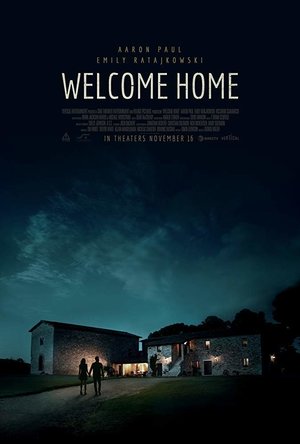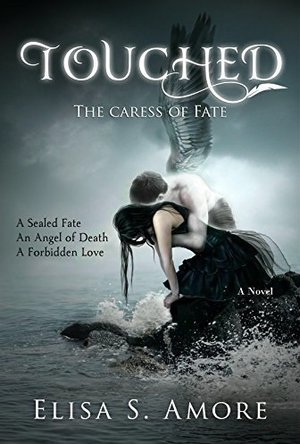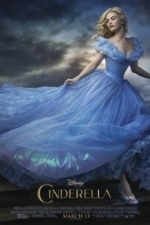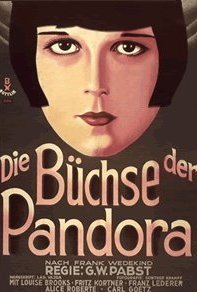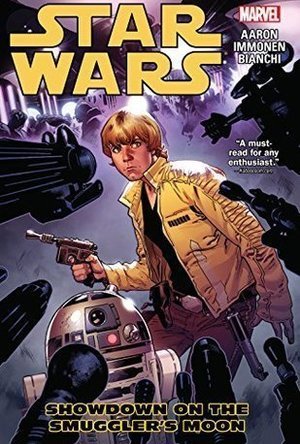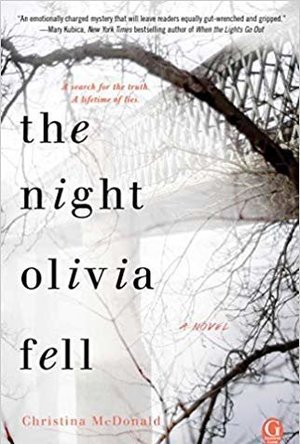Search

Sheep Frenzy 2
Games
App
Have you ever wondered if there’s an alternate universe where animals rule the world. What if…...
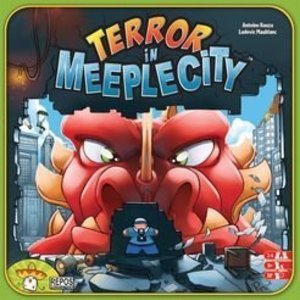
Terror in Meeple City
Tabletop Game
In Terror in Meeple City (formerly known as Rampage), you arrive in Meeple City as a gigantic,...
Lucy Buglass (45 KP) rated Welcome Home (2018) in Movies
Jun 20, 2019
The holiday from hell
We’ve all had holidays that didn’t go according to plan, but George Ratliff’s new thriller takes this idea to a whole new level. Welcome Home follows couple Cassie and Bryan as they travel to Italy together. They’ve rented a secluded, spacious home for a few days, so they can spend some quality time together. So far, so simple. However, it’s soon revealed that they’ve been having relationship problems due to Cassie having a drunken one night stand. It’s clear that this isn’t going to be an easy trip for them, and that’s before we meet the real threat.
Aaron Paul and Emily Ratajkowski are great in the lead roles. They feel like your everyday, plausible couple who are simply trying to repair their relationship. I found myself rooting for them and hoping they could reconnect throughout. Despite the slow pacing in places, I did genuinely care about them as characters. Without the strength of their acting, I think this film might have struggled in places as some of it seemed to drag or could’ve easily been cut out. Welcome Home does have similarities to the 2008 film The Strangers, in which see a strained relationship set within a secluded summer home, with the couple being terrorised by masked murderers.
This film’s antagonist, Frederico, is less ambiguous than that, and instead spends time with the couple and tries to befriend them in order to gain their trust. Cassie is a lot more receptive to this than Bryan, who is distrustful of Frederico after he brought Cassie back to the house when she sprained her ankle whilst running. He believes something else is going on, based on the one night stand. At first they believe he’s a neighbour, so nothing really seems out of the ordinary. Then, it starts to get weird. He says some strange things and starts showing up uninvited, even running into them on the street and deciding to turn up to the house to cook dinner.
Every second that Frederico’s on the screen is an uncomfortable one, and you know he’s not the innocent person he’s pretending to be. It’s only a matter of time before his true intentions are revealed to the couple, putting them both in danger. Italian actor Riccardo Scamarcio really blew me away in this film and I’m excited to see more from him.
Although it takes a while to get going, the second and third act of Welcome Home is a tense and unnerving experience. Frederico goes from friendly, helpful neighbour to a creepy psychopath very quickly, and it turns out he has very dark intentions for the couple. He spends the film manipulating them and turning them against each other. I won’t spoil it for you, but it turns this couple’s holiday into a complete nightmare. I did quite like the big reveal at the end, though it seems a little far-fetched it’s not beyond the realms of possibility given the digital age that we live in. This fact is emphasised by the voyeuristic nature of the camera, how we’re always peeking around doors or watching things we shouldn’t be.
I have seen stronger thrillers with better pacing, but Welcome Home is certainly an entertaining watch if you’re looking for a new, exciting story with a strong cast list. It puts a fun twist on your classic home invasion horror, with a charming, magnetic antagonist to really lure you in. I’d recommend giving it a go if you get the opportunity, as it’s worth it for the characters and the ending.
https://lucygoestohollywood.com/2018/11/13/the-holiday-from-hell-a-review-of-welcome-home/
Aaron Paul and Emily Ratajkowski are great in the lead roles. They feel like your everyday, plausible couple who are simply trying to repair their relationship. I found myself rooting for them and hoping they could reconnect throughout. Despite the slow pacing in places, I did genuinely care about them as characters. Without the strength of their acting, I think this film might have struggled in places as some of it seemed to drag or could’ve easily been cut out. Welcome Home does have similarities to the 2008 film The Strangers, in which see a strained relationship set within a secluded summer home, with the couple being terrorised by masked murderers.
This film’s antagonist, Frederico, is less ambiguous than that, and instead spends time with the couple and tries to befriend them in order to gain their trust. Cassie is a lot more receptive to this than Bryan, who is distrustful of Frederico after he brought Cassie back to the house when she sprained her ankle whilst running. He believes something else is going on, based on the one night stand. At first they believe he’s a neighbour, so nothing really seems out of the ordinary. Then, it starts to get weird. He says some strange things and starts showing up uninvited, even running into them on the street and deciding to turn up to the house to cook dinner.
Every second that Frederico’s on the screen is an uncomfortable one, and you know he’s not the innocent person he’s pretending to be. It’s only a matter of time before his true intentions are revealed to the couple, putting them both in danger. Italian actor Riccardo Scamarcio really blew me away in this film and I’m excited to see more from him.
Although it takes a while to get going, the second and third act of Welcome Home is a tense and unnerving experience. Frederico goes from friendly, helpful neighbour to a creepy psychopath very quickly, and it turns out he has very dark intentions for the couple. He spends the film manipulating them and turning them against each other. I won’t spoil it for you, but it turns this couple’s holiday into a complete nightmare. I did quite like the big reveal at the end, though it seems a little far-fetched it’s not beyond the realms of possibility given the digital age that we live in. This fact is emphasised by the voyeuristic nature of the camera, how we’re always peeking around doors or watching things we shouldn’t be.
I have seen stronger thrillers with better pacing, but Welcome Home is certainly an entertaining watch if you’re looking for a new, exciting story with a strong cast list. It puts a fun twist on your classic home invasion horror, with a charming, magnetic antagonist to really lure you in. I’d recommend giving it a go if you get the opportunity, as it’s worth it for the characters and the ending.
https://lucygoestohollywood.com/2018/11/13/the-holiday-from-hell-a-review-of-welcome-home/
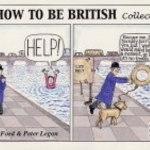
The How to be British Collection
Book
A perennially popular collection of colour cartoon illustrations, with accompanying texts, on the...
KittyMiku (138 KP) rated Touched: The Caress of Fate in Books
May 23, 2019
Contains spoilers, click to show
I thoroughly enjoyed this book. It was a great way to open the series. At first, I feared the book would consistently be confusing about the Angel of Death, Evan, but was pleasantly pleased that as the story went on that a lot of the confusion I had in the beginning was answered. I enjoyed learning about Evan and his brothers in arms and how they came about their particular gifts. I also enjoyed watching Evan transform from someone who doesn't have strong feelings or anything about his missions or anyone in particular to someone who cares very deeply and finds a reason for living and fighting against all odds.
At first, I was concerned about how Evan's past and being would interfere with his curiosity about Gemma and their blossoming relationship, even just as friends. As the story went on, I found myself being drawn deeper and deeper into the story. I can't say that I loved Evan and at times I even doubted his intentions, but I found how Gemma's view of him and her feelings for him made me root for him. I can't say how he seemed to play her in games she had no idea she was in, to be repulsive, but her way of understanding and the way he made her feel, made me smile. I found that the romance in this book, very clean and innocent, was refreshing and definitely helped curb the romance craving I had.
However, even with the romance, the action towards the end made it quite delightful. It helped explain more about the Angels of Death and a few things that were unclear. I also enjoyed learning about a different idea about how Heaven and Hell worked as well as a new view on Adam and Eve from the bible. With the different ideas the story presented, I found it to be amazingly refreshing. I found Amore to have beautiful details on the surroundings and the people in the story. It helped to draw in the reader and make it easy to actually visualize the scenery and practically feel like you were there and experiencing the scenes yourself.
I found the descriptions of the emotions felt to also be very realistic. We all know how it feels to be betrayed or like we don't have control over ourselves and to see these characters struggle with these emotions and these urges to be close to each other, helped remind us how much love can make you feel crazy and yet be amazing. I enjoyed how the description of their actions towards each other and how it made the other feel created my own thoughts of the first time my husband and I met and even held hands. I was thoroughly pleased with how well love was portrayed in this book. I have rarely found romance books that created that warm fuzzy feeling within my heart as this book has done for me. Most romance books can be slightly dirty, but this one wasn't so and that pleased me. I often find myself not wanting to read triple x rated scenes in books. It is a book I would even let my daughter read when she turned thirteen, unlike other romance novels.
I also enjoyed how that death wasn't the end but the final step for the soul to get to where it belonged and that lives are just borrowed time until your acceptance into Heaven, or Eden as it was called, or into Hell was made. It really makes you think about if it was true or just another idea created about the death. I found it truly exciting to think about and discuss with others around me. It was a new take and a delightful thought to have presented it to me in such a wonderful story.
Overall, I would recommend this book to those who love the paranormal and romance. I would rate this book four stars out of five stars. Even though I would love to have had a little more, I would definitely think its a good opening to the series and makes it so you want to read the rest of the five book series.
At first, I was concerned about how Evan's past and being would interfere with his curiosity about Gemma and their blossoming relationship, even just as friends. As the story went on, I found myself being drawn deeper and deeper into the story. I can't say that I loved Evan and at times I even doubted his intentions, but I found how Gemma's view of him and her feelings for him made me root for him. I can't say how he seemed to play her in games she had no idea she was in, to be repulsive, but her way of understanding and the way he made her feel, made me smile. I found that the romance in this book, very clean and innocent, was refreshing and definitely helped curb the romance craving I had.
However, even with the romance, the action towards the end made it quite delightful. It helped explain more about the Angels of Death and a few things that were unclear. I also enjoyed learning about a different idea about how Heaven and Hell worked as well as a new view on Adam and Eve from the bible. With the different ideas the story presented, I found it to be amazingly refreshing. I found Amore to have beautiful details on the surroundings and the people in the story. It helped to draw in the reader and make it easy to actually visualize the scenery and practically feel like you were there and experiencing the scenes yourself.
I found the descriptions of the emotions felt to also be very realistic. We all know how it feels to be betrayed or like we don't have control over ourselves and to see these characters struggle with these emotions and these urges to be close to each other, helped remind us how much love can make you feel crazy and yet be amazing. I enjoyed how the description of their actions towards each other and how it made the other feel created my own thoughts of the first time my husband and I met and even held hands. I was thoroughly pleased with how well love was portrayed in this book. I have rarely found romance books that created that warm fuzzy feeling within my heart as this book has done for me. Most romance books can be slightly dirty, but this one wasn't so and that pleased me. I often find myself not wanting to read triple x rated scenes in books. It is a book I would even let my daughter read when she turned thirteen, unlike other romance novels.
I also enjoyed how that death wasn't the end but the final step for the soul to get to where it belonged and that lives are just borrowed time until your acceptance into Heaven, or Eden as it was called, or into Hell was made. It really makes you think about if it was true or just another idea created about the death. I found it truly exciting to think about and discuss with others around me. It was a new take and a delightful thought to have presented it to me in such a wonderful story.
Overall, I would recommend this book to those who love the paranormal and romance. I would rate this book four stars out of five stars. Even though I would love to have had a little more, I would definitely think its a good opening to the series and makes it so you want to read the rest of the five book series.
Gareth von Kallenbach (980 KP) rated Cinderella (2015) in Movies
Aug 6, 2019
Throw together two beautiful faces from a couple of popular TV shows, award-winning veterans of the big screen, a director who loves to immerse viewers in story in the most spectacular of ways and what do you get? Sweet, magical enchantment.
Cinderella is Disney’s latest live-action translation of a classic animated film and under Kenneth Branagh’s deft direction it is simply wonderful. Retelling a beloved fairytale and making it feel fresh, delightful and satisfying is no small feat but Branagh does it with engaging actors, charming sets, captivating scenery and gorgeous costumes.
Lily James, recently of Downton Abbey, plays the heroine with sweet, innocent strength. Showered with love by her parents, played by Ben Chaplin and Hayley Atwell, Ella knows nothing about discontent or malice. Even after she loses her mother, and even after her father brings home an uncaring stepmother and disdainful stepsisters, Ella remains faithful to her mother’s dying wish for her daughter to “Have courage. Be Kind.”
Everyone knows how Ella became Cinderella and we all know just how badly she’s treated by her stepmother and stepsisters. Cate Blanchett is wickedly magnificent as the stepmother and Sophie McShera and Holliday Grainger bring new meaning to gaudy and garish.
I have to admit I’m a sucker for any fairytale that involves grand, sweeping ballroom scenes like Beauty and the Beast, Enchanted and now Cinderella. Of course, the scene could not have been possible without the help of a Fairy Godmother. Helena Bonham Carter is simply delightful in her role as Cinderella’s Fairy Godmother. The special effects used to give Cinderella a stunning gown as well as a horse-drawn carriage and driver and footmen were flawless
We also know how the story ends, but that didn’t stop the audience from sighing, holding its collective breath, and cheering when the prince, played handsomely by Richard Madden, finds the maiden whose foot fits perfectly in the glass slipper.
Days after our screener, my husband and I were still discussing the movie, that’s how much we enjoyed it. And when you can get your husband to easily agree to watch it again when it’s released, you know it’s a great movie.
Cinderella is Disney’s latest live-action translation of a classic animated film and under Kenneth Branagh’s deft direction it is simply wonderful. Retelling a beloved fairytale and making it feel fresh, delightful and satisfying is no small feat but Branagh does it with engaging actors, charming sets, captivating scenery and gorgeous costumes.
Lily James, recently of Downton Abbey, plays the heroine with sweet, innocent strength. Showered with love by her parents, played by Ben Chaplin and Hayley Atwell, Ella knows nothing about discontent or malice. Even after she loses her mother, and even after her father brings home an uncaring stepmother and disdainful stepsisters, Ella remains faithful to her mother’s dying wish for her daughter to “Have courage. Be Kind.”
Everyone knows how Ella became Cinderella and we all know just how badly she’s treated by her stepmother and stepsisters. Cate Blanchett is wickedly magnificent as the stepmother and Sophie McShera and Holliday Grainger bring new meaning to gaudy and garish.
I have to admit I’m a sucker for any fairytale that involves grand, sweeping ballroom scenes like Beauty and the Beast, Enchanted and now Cinderella. Of course, the scene could not have been possible without the help of a Fairy Godmother. Helena Bonham Carter is simply delightful in her role as Cinderella’s Fairy Godmother. The special effects used to give Cinderella a stunning gown as well as a horse-drawn carriage and driver and footmen were flawless
We also know how the story ends, but that didn’t stop the audience from sighing, holding its collective breath, and cheering when the prince, played handsomely by Richard Madden, finds the maiden whose foot fits perfectly in the glass slipper.
Days after our screener, my husband and I were still discussing the movie, that’s how much we enjoyed it. And when you can get your husband to easily agree to watch it again when it’s released, you know it’s a great movie.

Philosophy Now
Education and Magazines & Newspapers
App
Philosophy Now is a magazine for everyone interested in ideas. It aims to corrupt innocent citizens...
RəX Regent (349 KP) rated Pandora's Box (1929) in Movies
Feb 18, 2019
Pandora’s Box was one of the last films of the silent era, a period of transition to sound which I believe set the art of cinematography back a decade.
In short. Pandora’s Box looks stunning! Using the frame to its fullest, with a combination of wide framing and exploiting the art of the close up as Lulu herself, would the men around her, as well as driven by brilliant performances by most of the cast. But kudos needs to go to the star, Louise Brooks, as she portrays Lulu, the alluring flapper girl who can work her innocent, secutive magic on anyone, men and women alike.
But this is not limited to the narrative’s characters as her performance is subtle and underplayed, oozing out the silver screen and seducing the audience with same allure. If looks could kill, then this movie has them all.
With a sparse use of inter-titles, the film relies on both the physicality of the cast and imaginative cinematography to convey the seductive and danger of the events as they unfold over the two and bit hour runtime. Fritz Korner in particular rivals Brooks with the intensity of his performance as the ill fated husband of the girl about town.
And then there’s Alice Roberts, the Countess, who is widely thought to have the first lesbian to be seen on screen. Only Belgian actress’s second film in her short career, is played very Germanic, yet sympathetic as she too, has been drawn under Lulu’s spell.
This was made during the period in which German cinema was ruling, driving the art form from the nickelodeon to the theatre, but this was about to change in the 1930’s with advent of the sound and the golden age of American cinema. But as this film proves, you do not need sound to tell or show a good story.
Granted, the central story is pretty mediocre; a simple tale of a damaged woman who instinctively uses her allure to get her own way yet not as a diva, just an instinctive manipulator, casting her spell far and wide until that spell leads her into the hands London serial killer, Jack The Ripper (Gustav Diessl). But she is never portrayed as evil or scheming, just as herself as those around her are drawn to her aide.
There is little of the pantamine action or motives that you can expect from this genre even now, 90 years on.
But German director G.W. Pabst manages to create a multi-layered tale, deepened by psychological and social subtext, achieved as much because of the relationship he garnered with the star, Brookes, as he played on her natural talents to bring one of cinemas most defining roles to the screen. This would be the first of two collaborations between the director and the wayward starlet that year.
Pandora’s Box is yet another example of how German Cinema was leading the world back in the 1920’s; and even though the second world war may have brought this golden era to an abrupt end, it’s legacy lives on today with the styles, both in front and behind the camera, still being honoured by entire film industry now and hopefully for decades to come.
In short. Pandora’s Box looks stunning! Using the frame to its fullest, with a combination of wide framing and exploiting the art of the close up as Lulu herself, would the men around her, as well as driven by brilliant performances by most of the cast. But kudos needs to go to the star, Louise Brooks, as she portrays Lulu, the alluring flapper girl who can work her innocent, secutive magic on anyone, men and women alike.
But this is not limited to the narrative’s characters as her performance is subtle and underplayed, oozing out the silver screen and seducing the audience with same allure. If looks could kill, then this movie has them all.
With a sparse use of inter-titles, the film relies on both the physicality of the cast and imaginative cinematography to convey the seductive and danger of the events as they unfold over the two and bit hour runtime. Fritz Korner in particular rivals Brooks with the intensity of his performance as the ill fated husband of the girl about town.
And then there’s Alice Roberts, the Countess, who is widely thought to have the first lesbian to be seen on screen. Only Belgian actress’s second film in her short career, is played very Germanic, yet sympathetic as she too, has been drawn under Lulu’s spell.
This was made during the period in which German cinema was ruling, driving the art form from the nickelodeon to the theatre, but this was about to change in the 1930’s with advent of the sound and the golden age of American cinema. But as this film proves, you do not need sound to tell or show a good story.
Granted, the central story is pretty mediocre; a simple tale of a damaged woman who instinctively uses her allure to get her own way yet not as a diva, just an instinctive manipulator, casting her spell far and wide until that spell leads her into the hands London serial killer, Jack The Ripper (Gustav Diessl). But she is never portrayed as evil or scheming, just as herself as those around her are drawn to her aide.
There is little of the pantamine action or motives that you can expect from this genre even now, 90 years on.
But German director G.W. Pabst manages to create a multi-layered tale, deepened by psychological and social subtext, achieved as much because of the relationship he garnered with the star, Brookes, as he played on her natural talents to bring one of cinemas most defining roles to the screen. This would be the first of two collaborations between the director and the wayward starlet that year.
Pandora’s Box is yet another example of how German Cinema was leading the world back in the 1920’s; and even though the second world war may have brought this golden era to an abrupt end, it’s legacy lives on today with the styles, both in front and behind the camera, still being honoured by entire film industry now and hopefully for decades to come.
Jordan Binkerd (567 KP) rated Star Wars, Vol. 2: Showdown on the Smuggler's Moon in Books
Aug 9, 2019
Note: this review is transposted from my personal review blog, and so was originally written several years ago. I figured if I reposted it here, someone might actually read it….
I very much enjoyed the first volume of Marvel’s ongoing Star Wars series, but many other reviewers took issue with it for playing things safe and giving us a story like many we’d seen before. These criticisms are not completely unfounded, I’ll admit, but neither are they completely fair. Either way, this is not a problem the series has going forward…. This second volume also includes the one-off flashback story THE LAST OF HIS BREED, featuring Obi-Wan Kenobi adjusting to his exile on Tatooine, which is discussed separately below.
Luke Skywalker has successfully escaped the clutches of the bounty hunter Boba Fett, but all he got for his troubles was the journal of Obi-Wan Kenobi–no small prize, but probably not all that helpful in furthering his Jedi training. So what’s the next logical step in learning about the Jedi? Try and sneak onto Coruscant to infiltrate the old Jedi Temple, of course! But when his attempt to find a discreet ship and pilot in a seedy bar on Nar Shaddaa goes horribly awry, Luke finds himself the prisoner of Grakkus the Hutt. In addition to the traditional crime and vice, Grakkus has made a name for himself as one of the foremost collectors of Jedi artifacts. Now Luke faces the battle of his life in Grakkus’ arena, billed as “the last Jedi” and pitted against a fearsome creature for the amusement of Grakkus’ fellow crime lords….Meanwhile, Han and Leia are out scouting potential locations for a new Rebel base when they run across a figure from Han’s past. Her name is Sana, and she claims to be his wife….
As with the previous volume, this was some stellar work. Jason Aaron nails the banter between Han & Leia, to the point where you can almost hear Carrie Fisher and Harrison Ford delivering the lines, and Luke’s mix of cockiness and self-doubt is spot-on for his character and situation. Also of note is Stuart Immonen’s spectacular artwork. From the character closeups to the panoramic vistas, this was pure Star Wars. Also amusing was watching our entire cast wade into battle wielding lightsabers. Did Luke manage to salvage anything of value from Grakkus’ stash on his way out? I guess we’ll have to wait and see….
Then there’s the Obi-Wan backup story. It’s been seven years since the rise of the Empire, seven years since the death of the Jedi and the Republic. Formerly one of the greatest Jedi of his generation, now Obi-Wan Kenobi lives a life of obscurity on the desert planet of Tatooine. Where once he protected the innocent of the galaxy, now “Old Ben” forces himself to look the other way lest he draw the Empire’s notice as Jabba’s thugs extort water from the locals. All that matters is protecting the boy, Luke Skywalker, on whose unknowing shoulders rest the fate of the galaxy. But there are limits to the patience of even the greatest of Jedi….
This was a good one. The story was solid, and it’s always interesting to see Obi-Wan’s state of mind during his exile. Was this done better in John Jackson Miller’s KENOBI? Yes. That goes without saying, if only because he had more than twenty-four pages to tell his story. At any rate, KENOBI isn’t canon anymore, so we’ll not dwell on it. Simone Bianchi’s art here was stellar, I must say, and his Kenobi managed to blend Ewan McGregor and Alec Guinness superbly. I would very much like to see more of these one-off excerpts from Obi-Wan’s journal appear in future issues of the comic.
CONTENT: Moderate violence, not too gruesome most of the time. Mild profanity. Mild sexual innuendo and flirting.
Original posts: Main story (https://jordanbinkerd.wordpress.com/2015/11/23/review-star-wars-showdown-on-the-smugglers-moon-by-jason-aaron-stuart-immonen/) & Obi-Wan Flashback (https://jordanbinkerd.wordpress.com/2015/11/23/review-star-wars-the-last-of-his-breed-by-jason-aaron-simone-bianchi/)
I very much enjoyed the first volume of Marvel’s ongoing Star Wars series, but many other reviewers took issue with it for playing things safe and giving us a story like many we’d seen before. These criticisms are not completely unfounded, I’ll admit, but neither are they completely fair. Either way, this is not a problem the series has going forward…. This second volume also includes the one-off flashback story THE LAST OF HIS BREED, featuring Obi-Wan Kenobi adjusting to his exile on Tatooine, which is discussed separately below.
Luke Skywalker has successfully escaped the clutches of the bounty hunter Boba Fett, but all he got for his troubles was the journal of Obi-Wan Kenobi–no small prize, but probably not all that helpful in furthering his Jedi training. So what’s the next logical step in learning about the Jedi? Try and sneak onto Coruscant to infiltrate the old Jedi Temple, of course! But when his attempt to find a discreet ship and pilot in a seedy bar on Nar Shaddaa goes horribly awry, Luke finds himself the prisoner of Grakkus the Hutt. In addition to the traditional crime and vice, Grakkus has made a name for himself as one of the foremost collectors of Jedi artifacts. Now Luke faces the battle of his life in Grakkus’ arena, billed as “the last Jedi” and pitted against a fearsome creature for the amusement of Grakkus’ fellow crime lords….Meanwhile, Han and Leia are out scouting potential locations for a new Rebel base when they run across a figure from Han’s past. Her name is Sana, and she claims to be his wife….
As with the previous volume, this was some stellar work. Jason Aaron nails the banter between Han & Leia, to the point where you can almost hear Carrie Fisher and Harrison Ford delivering the lines, and Luke’s mix of cockiness and self-doubt is spot-on for his character and situation. Also of note is Stuart Immonen’s spectacular artwork. From the character closeups to the panoramic vistas, this was pure Star Wars. Also amusing was watching our entire cast wade into battle wielding lightsabers. Did Luke manage to salvage anything of value from Grakkus’ stash on his way out? I guess we’ll have to wait and see….
Then there’s the Obi-Wan backup story. It’s been seven years since the rise of the Empire, seven years since the death of the Jedi and the Republic. Formerly one of the greatest Jedi of his generation, now Obi-Wan Kenobi lives a life of obscurity on the desert planet of Tatooine. Where once he protected the innocent of the galaxy, now “Old Ben” forces himself to look the other way lest he draw the Empire’s notice as Jabba’s thugs extort water from the locals. All that matters is protecting the boy, Luke Skywalker, on whose unknowing shoulders rest the fate of the galaxy. But there are limits to the patience of even the greatest of Jedi….
This was a good one. The story was solid, and it’s always interesting to see Obi-Wan’s state of mind during his exile. Was this done better in John Jackson Miller’s KENOBI? Yes. That goes without saying, if only because he had more than twenty-four pages to tell his story. At any rate, KENOBI isn’t canon anymore, so we’ll not dwell on it. Simone Bianchi’s art here was stellar, I must say, and his Kenobi managed to blend Ewan McGregor and Alec Guinness superbly. I would very much like to see more of these one-off excerpts from Obi-Wan’s journal appear in future issues of the comic.
CONTENT: Moderate violence, not too gruesome most of the time. Mild profanity. Mild sexual innuendo and flirting.
Original posts: Main story (https://jordanbinkerd.wordpress.com/2015/11/23/review-star-wars-showdown-on-the-smugglers-moon-by-jason-aaron-stuart-immonen/) & Obi-Wan Flashback (https://jordanbinkerd.wordpress.com/2015/11/23/review-star-wars-the-last-of-his-breed-by-jason-aaron-simone-bianchi/)
Heather Cranmer (2721 KP) rated The Night Olivia Fell in Books
Mar 15, 2019
Wow!
I had been wanting to read The Night Olivia Fell by Christina McDonald for awhile. I was beyond thrilled when I was able to borrow the eBook from my library. Luckily, the book lived up to the hype I had built in my mind.
I found the plot of The Night Olivia Fell to be very intriguing and well written. There were so many feelings with this novel. I enjoyed reading things from Abi's perspective and then going back in time to read flashbacks in Olivia's perspective. I found myself trying to decide if Olivia really was murdered or if she killed herself. There were so many times I thought I had figured out who pushed Olivia just to be wrong. I did find myself hoping that by some miracle, Olivia would go back to being the same before she fell off the bridge. (Hope springs eternal with me.) This was more than just the mystery of Olivia's fall. Olivia was also trying to figure out who her father was, and there was also Olivia's blossoming romance with Derrick. There were a few plot twists which were enjoyable. My only complaint is that I wish there would have been information on the court case. I just felt that I needed closure and to make sure justice was served. Other than that, I felt like the story was written perfectly.
I felt that the characters in The Night Olivia Fell were very fleshed out and realistic. My heart went out to both Olivia and Abi. I could understand how Abi just wanted to make sure Olivia was safe and doing well, but I could also sympathize with out Olivia felt like Abi was smothering her a lot of the time. Olivia was very much like a typical teenager to begin with, but once she found out she was pregnant, I felt like she really blossomed. Olivia would have been an excellent mother, and it was sweet to see how she was willing to protect her unborn baby. Abi just wanted what was best for Olivia being as she was a single mother. She worked her behind off to make sure Olivia was okay. It was obvious how much Abi loved Olivia. Kendall was a bit of a wild card. I liked her, but I was always wondering if she had an endgame. Gavin was another wild card. I wanted to believe he wouldn't stoop so low as to hurt a young innocent girl, but then the more I read about him, the more I wasn't sure of his character. I started out feeling sorry for Tyler with how much he had going on with him, but I was glad that Olivia chose Derek. Derek seemed to be really sweet, and it was sad that people judged him based on a some stretched truths.
The pacing was done brilliantly for The Night Olivia Fell. Not once did I ever feel like the story dragged on or was becoming too predictable. I felt as if each page was an adventure which made this book an easy read.
Trigger warnings for The Night Olivia Fell include violence, threats, blackmail, profanity, and a semi-graphic sex scene between a 17 year old girl and her boyfriend.
All in all, The Night Olivia Fell was a great read! It had such an interesting plot as well as fantastically written characters. This book grabs you by the hand and never lets you go. I would definitely recommend The Night Olivia Fell by Christina McDonald to those aged 17+. It's one of those books that leaves you thinking about it long after you've finished it.
I found the plot of The Night Olivia Fell to be very intriguing and well written. There were so many feelings with this novel. I enjoyed reading things from Abi's perspective and then going back in time to read flashbacks in Olivia's perspective. I found myself trying to decide if Olivia really was murdered or if she killed herself. There were so many times I thought I had figured out who pushed Olivia just to be wrong. I did find myself hoping that by some miracle, Olivia would go back to being the same before she fell off the bridge. (Hope springs eternal with me.) This was more than just the mystery of Olivia's fall. Olivia was also trying to figure out who her father was, and there was also Olivia's blossoming romance with Derrick. There were a few plot twists which were enjoyable. My only complaint is that I wish there would have been information on the court case. I just felt that I needed closure and to make sure justice was served. Other than that, I felt like the story was written perfectly.
I felt that the characters in The Night Olivia Fell were very fleshed out and realistic. My heart went out to both Olivia and Abi. I could understand how Abi just wanted to make sure Olivia was safe and doing well, but I could also sympathize with out Olivia felt like Abi was smothering her a lot of the time. Olivia was very much like a typical teenager to begin with, but once she found out she was pregnant, I felt like she really blossomed. Olivia would have been an excellent mother, and it was sweet to see how she was willing to protect her unborn baby. Abi just wanted what was best for Olivia being as she was a single mother. She worked her behind off to make sure Olivia was okay. It was obvious how much Abi loved Olivia. Kendall was a bit of a wild card. I liked her, but I was always wondering if she had an endgame. Gavin was another wild card. I wanted to believe he wouldn't stoop so low as to hurt a young innocent girl, but then the more I read about him, the more I wasn't sure of his character. I started out feeling sorry for Tyler with how much he had going on with him, but I was glad that Olivia chose Derek. Derek seemed to be really sweet, and it was sad that people judged him based on a some stretched truths.
The pacing was done brilliantly for The Night Olivia Fell. Not once did I ever feel like the story dragged on or was becoming too predictable. I felt as if each page was an adventure which made this book an easy read.
Trigger warnings for The Night Olivia Fell include violence, threats, blackmail, profanity, and a semi-graphic sex scene between a 17 year old girl and her boyfriend.
All in all, The Night Olivia Fell was a great read! It had such an interesting plot as well as fantastically written characters. This book grabs you by the hand and never lets you go. I would definitely recommend The Night Olivia Fell by Christina McDonald to those aged 17+. It's one of those books that leaves you thinking about it long after you've finished it.
